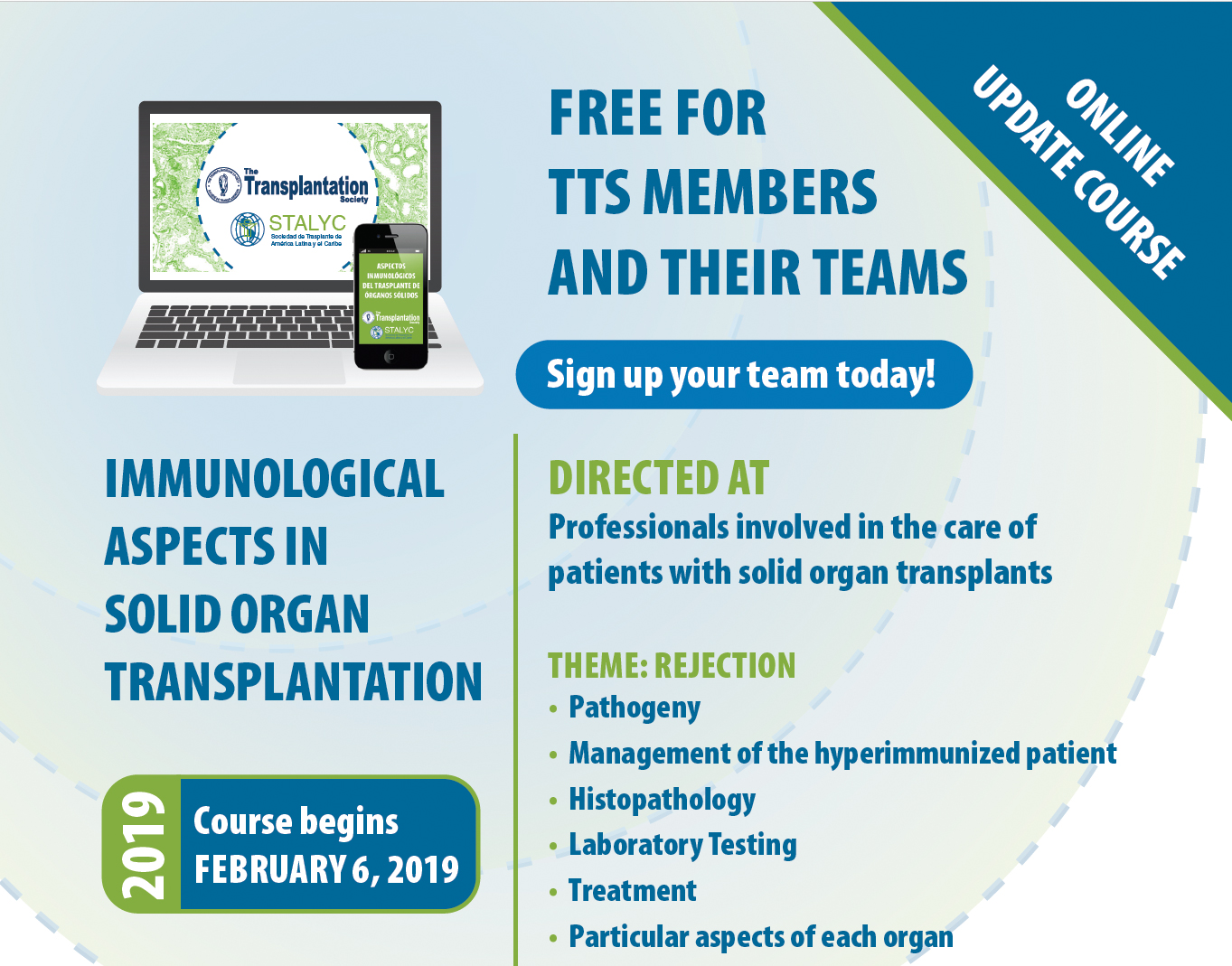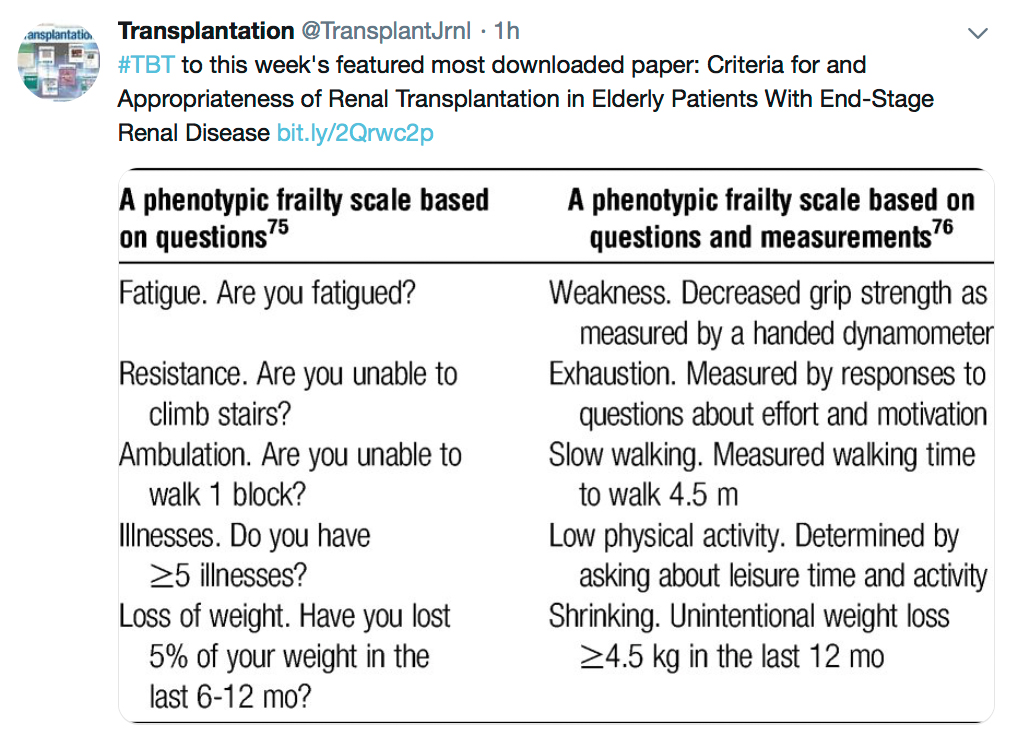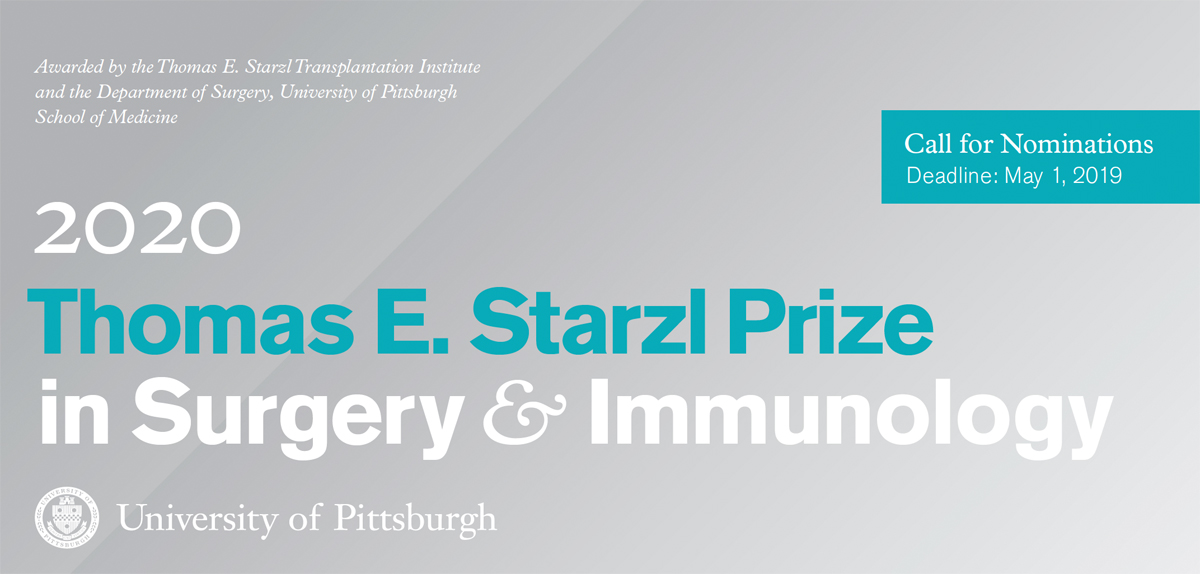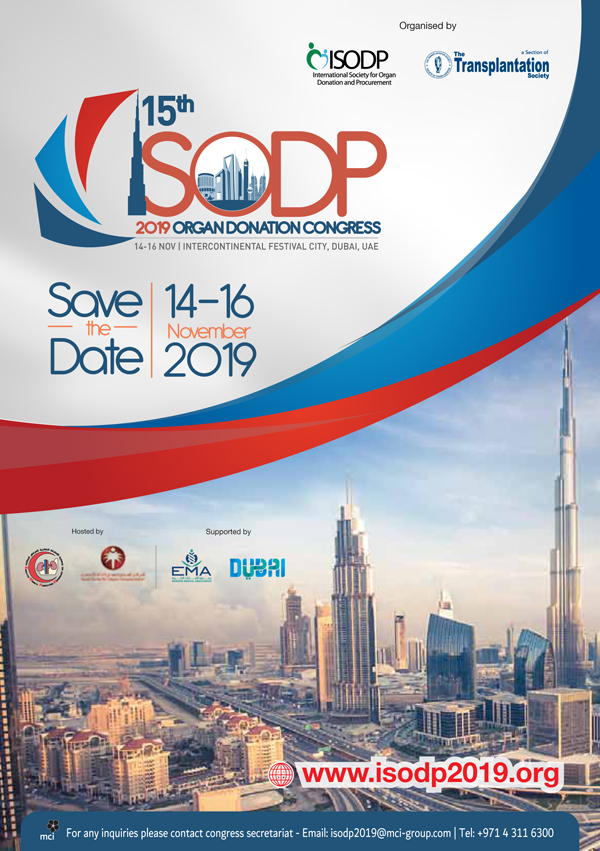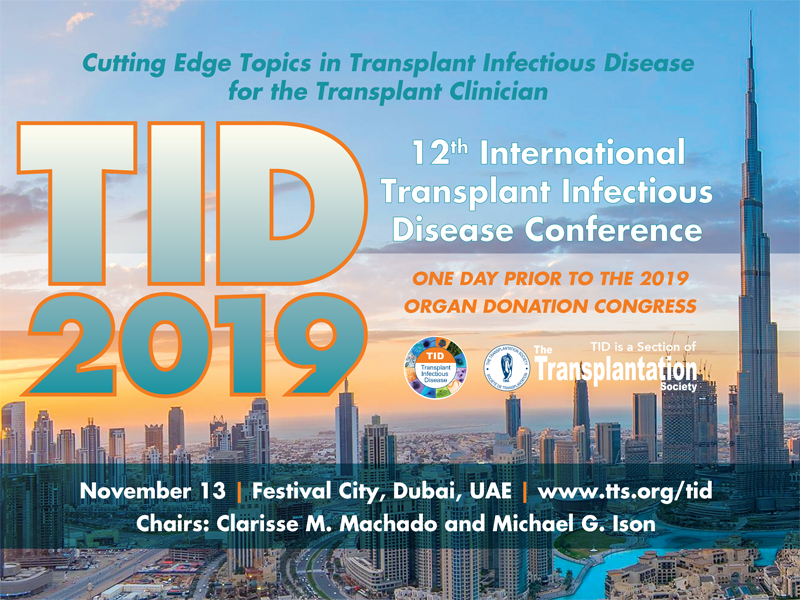
FREE Online Course for TTS MEMBERS AND the MEMBERS OF THEIR TEAMS
Early Registration is NOW OPEN - IT Just Takes ONE MINUTE TO REGISTER!
Following up on the great success of the Course in Spanish and Portuguese, we have decided to expanded the course to english AND made it available for free to participate in for TTS Members and those in their transplant teams.
Over an eight week period, featuring 20+ online presentations, we will guide you through all the important aspects in immunology.
The course was designed to allow participants to learn at their own pace and time during each week of the course. You can post questions and tutors will respond to them.
TRANSPLANTATION - HIGHLIGHTED ARTICLE
Dr Joel Thomas Adler, Editorial Fellow, Transplantation
Population Health, Ethnicity, and Rate of Living Donor Kidney Transplantation.
Reed RD, Sawinski D, Shelton, BA et al.
Transplantation. 2018;102(12):2080-2087.
Rates of living donation have declined in the United States; understanding the population health risk factors could improve living donation. Reed et al. examined the relationship between living donation rates, population health, and socioeconomic status as assessed by the CDC Behavioral Risk Factor Surveillance System. Rates of living donation were, on average, 7.3 points lower among centers listing more complex patients reflected by comorbid diseases and worse socioeconomic status. Understanding these population risk factors, as well as the center-level variation, may help to improve living donation rates among disadvantaged populations.
TTS-ILTS PAIRED TRANSPLANT CENTERS PROGRAM
Deadline January 1, 2019 - Less than two weeks to GO!
Watch Video Overview with Nancy Ascher(TTS) and John Klick (ILTs)
The TTS-ILTS Paired Transplant Centers Program is a collaboration between The Transplantation Society (TTS) and the International Liver Transplantation Society (ILTS) supporting new liver transplant programs in emerging countries.
THOMAS E. Starzl Prize
Call for Nominations Deadline - May 1, 2019
The Thomas E. Starzl Transplantation Institute is accepting nominations for the 2020 Thomas E. Starzl Prize in Surgery and Immunology, awarded annually to a national or international leader in the field of organ transplantation and immunology.
In the News
Canada - Transplant shows better 10-year outcomes than dialysis
December 20 - According to the yearly release from the Canadian Institute for Health Information's organ replacement register, patients who received a transplant due to end-stage kidney disease have better 10-year outcomes than individuals receiving dialysis. Only 16% of Canadian patients on dialysis survive more than 10 years, while 74% of patients who receive transplantation will still have functioning kidneys.
Interesting Case of When a Child Needs a Transplant but Lacks Familial Social Support
December 5 - We present the case of a 19-month-old boy with complex congenital heart disease. His single father is skeptical of traditional medicine and does not offer the social support needed to make heart transplantation successful for his son.
NY Times - OPINION - My Father Needed a Liver. Did It Have to Be From Me?
December 18 - Although the bodies of women in India are policed like international borders, families don't mind their bodies being cut up for organ donation. Women constitute a majority of living organ donors in India — nearly three-quarters of kidney donors and more than half of liver donors.
Predicting Low-Risk for Sustained Alcohol Use After Early Liver Transplant for Acute Alcoholic Hepatitis: The SALT Score
December 20 - Early liver transplant (LT) for alcohol-associated disease (i.e. without a specific sobriety period) is controversial, but increasingly used. Using the multicenter American Consortium of Early Liver Transplantation for Alcoholic Hepatitis (ACCELERATE-AH) cohort, we aimed to develop a predictive tool to identify patients pre-transplant with low-risk for sustained alcohol use post-transplant to inform selection of candidates for early LT candidates.
Upcoming Meetings and ANNOUNCEMENTS
1st TTS Regional Meeting on Deceased Donation
We are offering low registration fees, which are further reduced for TTS, MESOT, TDTD or TOND Members, nurses and non physicians. Students may attend the meeting for free.
Tersaki Symposium - Save the Dates
This email address is being protected from spambots. You need JavaScript enabled to view it.
This email address is being protected from spambots. You need JavaScript enabled to view it.
TID2019 - SAVE THE DATES!
PrE-MEETING TO ISODP 2019 - SAME VENUE ...one day prior!
Contact
+1-514-874-1717
This email address is being protected from spambots. You need JavaScript enabled to view it.
Address
The Transplantation Society
International Headquarters
505 Boulevard René-Lévesque Ouest
Suite 1401
Montréal, QC, H2Z 1Y7
Canada

